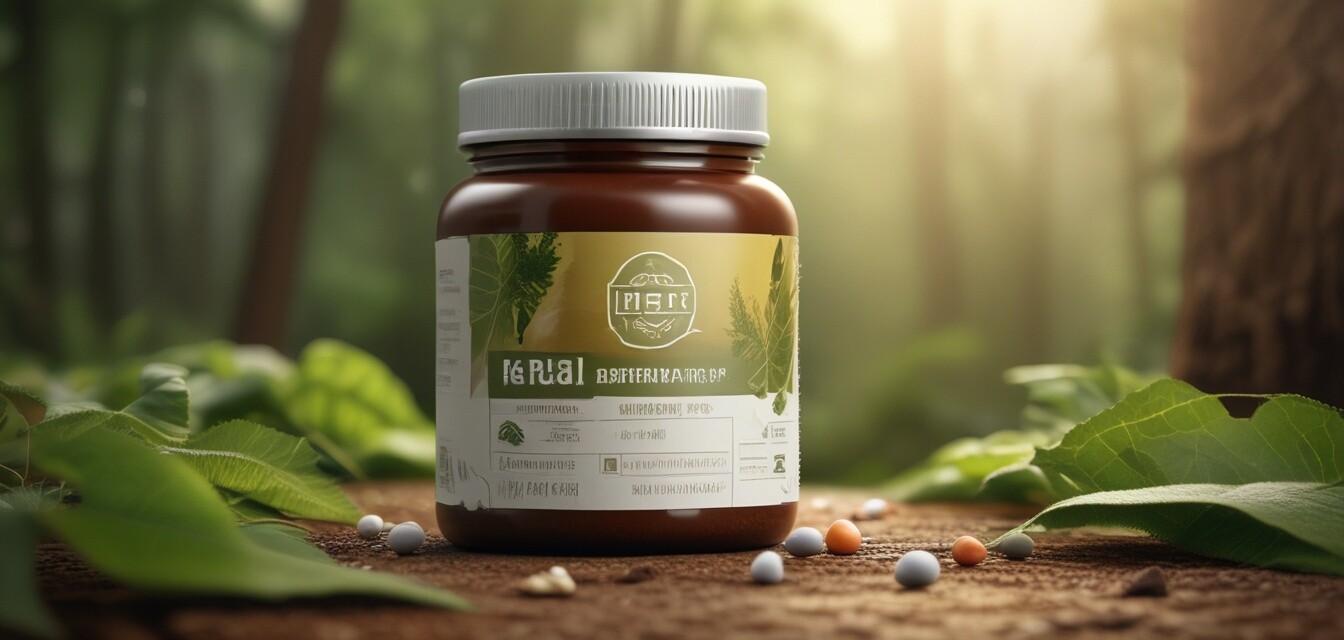
How to evaluate the sustainability of your supplements
Key Takeaways
- Assess the sourcing of ingredients in your supplements.
- Look for certifications indicating sustainable practices.
- Check the transparency of brands regarding their production processes.
- Consider packaging materials and their impact on the environment.
- Support brands committed to ethical practices and community wellbeing.
In today's world, where health and environmental sustainability go hand in hand, assessing the sustainability of dietary supplements is more important than ever. Consumers are becoming more conscious of the negative impacts that traditional sourcing and manufacturing processes can have on our planet. This practical guide aims to help you evaluate supplement options by focusing on ethical sourcing, certifications, and eco-friendly practices. Let's dive deeper into how you can intelligently select sustainable supplements.
Understanding sustainable sourcing
One of the essential factors to consider when evaluating supplements is the sourcing of their ingredients. Sustainable sourcing means that the ingredients are obtained in a manner that does not harm the environment or the communities involved in their production. Here's how to assess sourcing effectively:
- Research the supply chain: Understand where the company sources its ingredients and whether they prioritize local producers.
- Inquire about farming practices: Companies should provide information on how their ingredients are farmed, including whether they use organic practices.
- Check for regenerative practices: Look for operations that focus on regeneration, which restores ecosystems.
Look for eco-friendly certifications
Certifications can provide a benchmark for the sustainability of supplements. Here are some reputable certifications to watch for:
| Certification | Description |
|---|---|
| USDA Organic | Indicates that ingredients are grown without harmful pesticides and synthetic fertilizers. |
| Fair Trade | Ensures that producers receive fair prices and working conditions. |
| Non-GMO Project Verified | Confirms that products use ingredients not genetically modified. |
| Rainforest Alliance Certified | Focuses on sustainable farming and protecting biodiversity. |
Brand transparency and ethical practices
Transparent brands are crucial in establishing trust. When evaluating supplements, consider the following:
- Brand history: Research the company's history and their commitment to sustainability.
- Ingredient transparency: Brands should openly list all ingredients and their sources.
- Production process: Look for companies that share details about their manufacturing processes and how they minimize environmental impact.
Assessing packaging sustainability
The sustainability of a product extends beyond its ingredients to its packaging. Packaging plays a significant role in waste management and environmental effects.
- Minimal packaging: Opt for brands that use less packaging or minimalistic designs.
- Recyclable materials: Check if the packaging is made from materials that can be recycled.
- Refillable options: Some brands offer refillable containers to reduce waste.
Supporting ethical brands
Choosing to support brands that prioritize sustainability not only benefits you but also contributes to positive changes in the industry. Here are some practices to look for:
- Community support: Brands that contribute to local communities through education and sustainable practices.
- Environmental initiatives: Companies that actively participate in reforestation or conservation projects.
- Employee welfare: Ethical labor practices for all employees and farmworkers.
Taking action towards sustainability
By following these guidelines, you can make a significant difference in how you choose your supplements. Integrating sustainability into your lifestyle doesn't have to be overwhelming. Start with small steps:
- Research brands before purchasing.
- Ask questions about sourcing and production.
- Choose products with eco-friendly certifications.
- Advocate for sustainable practices within your community.
Tips for beginners
- Make a checklist of criteria for sustainability while shopping.
- Join forums or groups focused on sustainable living to share knowledge and tips.
- Stay informed about new sustainable brands and products.
Pros
- Promotes a healthier planet.
- Supports ethical labor practices.
- Encourages transparency and accountability in the supplement industry.
Cons
- Sustainable products may be priced higher.
- Limited availability in certain regions.
- Sifting through certifications can be time-consuming.
For more information on finding the right supplements, check out our buying guides. If you are looking for sustainable products specifically, visit our sections on herbal supplements or vegan supplements.
Ultimately, sustainable living is about making informed choices. By taking the time to evaluate the sustainability of your supplements, you can ensure that your purchases reflect your values, promoting not only personal health but also the health of our planet.